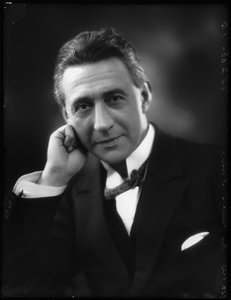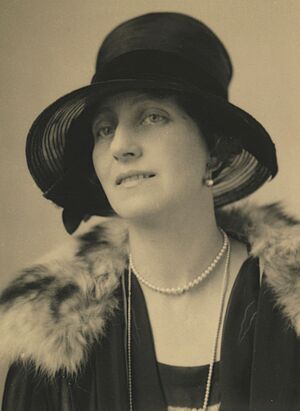James Irvine (chemist) facts for kids
Quick facts for kids
James Irvine
|
|
|---|---|
 |
|
| Principal of the University of St Andrews | |
| In office 1921–1952 |
|
| Preceded by | Sir John Herkless |
| Succeeded by | Sir Thomas Malcolm Knox |
| Principal of University College, Dundee | |
| In office 1930–1939 |
|
| Preceded by | John Yule Mackay |
| Succeeded by | Angus Robertson Fulton |
| Personal details | |
| Born | 9 May 1877 Glasgow, Scotland |
| Died | 12 June 1952 (aged 75) St Andrews, Fife, Scotland |
| Spouse |
Mabel Violet Williams
(m. 1905) |
| Education | Allan Glen's School |
| Alma mater | Royal Technical College University of St Andrews University of Leipzig |
| Awards | Davy Medal (1925) Willard Gibbs Award (1926) Elliott Cresson Medal (1929) Longstaff Prize (1933) |
| Scientific career | |
| Fields | Organic chemistry |
Sir James Colquhoun Irvine (9 May 1877 – 12 June 1952) was an important Scottish organic chemist and university leader. He served as the Principal and Vice-Chancellor of the University of St Andrews from 1921 until his death.
As a research chemist, Irvine focused on carbohydrates, which are like sugars and starches. He used a special method called methylation to study them. He was the first to successfully isolate methylated sugars, such as trimethyl and tetramethyl glucose. This work helped scientists better understand how these important molecules are built.
Contents
Early Life and Education
James Irvine was born in Glasgow, Scotland, in 1877. His father, John Irvine, owned a factory that made metal castings.
James went to Allan Glen's School for his early education. He then continued his studies at the Royal College of Science and Technology in Glasgow. Later, he earned a Bachelor of Science degree in Chemistry from the University of St Andrews.
To further his knowledge, he traveled to Germany. There, he studied for his PhD at the University of Leipzig. He learned from famous chemists like Wilhelm Ostwald and Johannes Wislicenus.
Career in Chemistry and Academia
After finishing his studies, James Irvine returned to the University of St Andrews. He earned a Doctor of Science degree there and began teaching Chemistry.
In 1909, he became a Professor of Chemistry. A few years later, in 1912, he was made the Dean of Science. This meant he was in charge of the science department.
Leading the University
In 1921, James Irvine was appointed Principal of the University of St Andrews. This was a very important role, similar to being the president of a university. He held this position until he passed away.
During his time as Principal, he worked hard to improve the university. He oversaw the repair and renewal of many buildings. He also helped bring back old traditions. His efforts are still remembered at the university today.
Irvine's influence went beyond just St Andrews. He also helped shape higher education across Britain and its colonies. He even served as the acting Principal of University College Dundee for a period.
Awards and Recognition
Sir James Irvine received many honors for his work.
- In 1917, he was chosen as a Fellow of the Royal Society of Edinburgh. This is a group of top experts in Scotland.
- The following year, in 1918, he became a Fellow of The Royal Society of London. This is one of the oldest and most respected scientific organizations in the world.
- The Royal Society also gave him the Davy Medal in 1925 for his important chemical research.
- He received the Willard Gibbs Award in 1926 from the American Chemical Society.
- In 1929, he was awarded the Elliott Cresson Medal by the Franklin Institute.
- He won the Longstaff Prize from the Chemical Society of London in 1933.
- In 1933, he was elected an International Member of the American Philosophical Society. This is a famous group in the United States.
- He also won the society's Gunning Victoria Jubilee Prize between 1936 and 1940.
Knighthood and Honorary Degrees
James Irvine was recognized for his public service as well.
- In 1920, he was made a Commander of the Order of the British Empire (KBE).
- He was knighted in 1925, which means he received the title "Sir."
- He was also given the Freedom of St Andrews, a special honor from the town.
Many universities around the world gave him honorary doctorates. These included degrees from Aberdeen, Cambridge, Columbia, Edinburgh, Glasgow, Oxford, and Princeton.
Personal Life
James Irvine married Mabel Violet Williams in 1905.
He passed away at his home in St Andrews on 12 June 1952. He was buried in the eastern cemetery in St Andrews.
Images for kids



